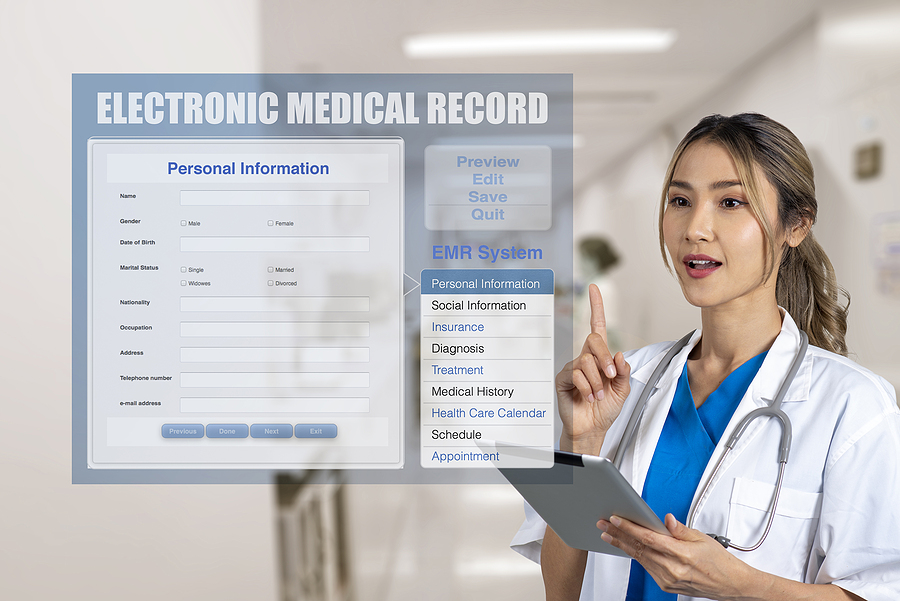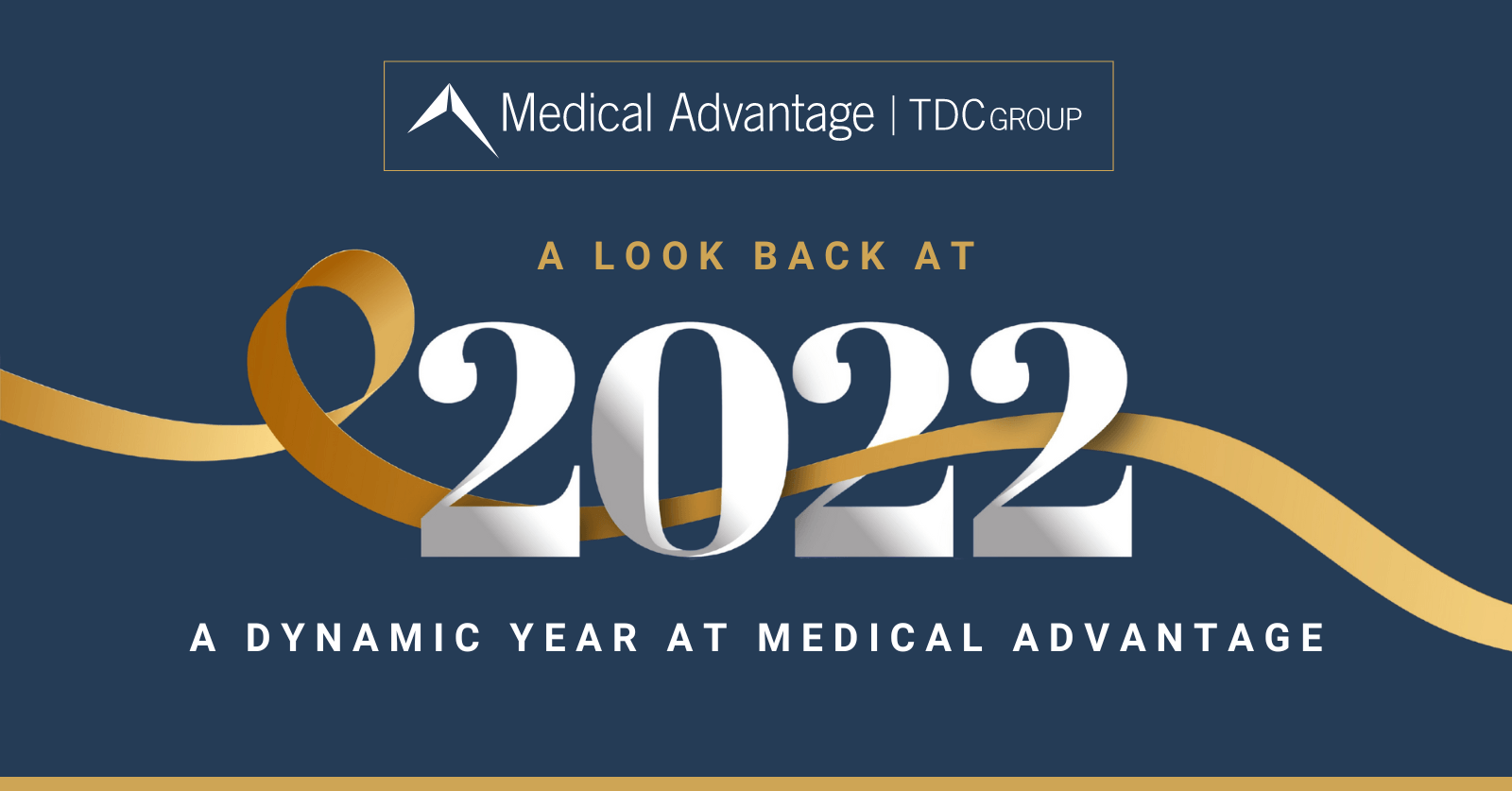In 2021, the Office of the National Coordinator for Health Information Technology (ONC) reported that 78% of office-based providers and 96% non-federal acute care hospitals have adopted the EHR system.
Electronic health records – or EHR – is a paperless data capture system that digitally stores a patient’s complete health record. Decades ago, EHRs were mostly used by large hospital systems with the means to afford an alternative to paper records, but now EHRs are widely used as they are essential for practicing medicine in the digital world.
How does an EHR work? EHRs are more than just a virtual filing cabinet where patient data just sits – they also make it much easier to share records with patients and other providers along with uncovering insights to improve patient care.
How Does the EHR System Work?
We define the EHR as “a portable data storage and sharing framework that tracks the entire patient journey, including visits to various providers along the way.” While some EHR software brands are more prevalent and well known than others, there are dozens of different EHR systems to choose from, allowing practices to choose the EHR that works best for their needs.
In the EHR system, providers enter patient information directly into the EHR and create a digital record that will be updated with each future encounter with the patient. Examples of patient information captured by the EHR system are:
- Family medical history
- Vital signs
- Medical history diagnoses
- Demographic information
- Medications
- Allergies
- Immunizations
- Lab test results and radiology reports
- Billing and insurance information
EHRs are designed to easily – yet safely – share information externally with other entities involved in patient care such as specialists, lab facilities, pharmacies, payers, and more. This allows for interoperability which is a crucial component of value-based care.
This record effectively follows the patients along their care journey, but more importantly, it makes it easier for providers to share health information with their patients directly. Not only does transparency in record sharing build trust with patients, but it also complies with expanding government policies (such as the 21st Century CURES Act).
How do Electronic Health Records Benefit Practices?
Making good use of an electronic health record system is one significant way practices can benefit from leveraging technology, and there are many benefits that stem from this.
Improved Diagnostics and Patient Outcomes
According to a survey of doctors, 88% of doctors reported that EHR produces clinical benefits for their patients, while 75% reported that EHR allows them to deliver better patient care.
Ready access to a patient’s complete medical records – including those from external entities – allows providers to arrive at more accurate diagnoses and to provide personalized care to patients. Such evidence-based decision-making improves care quality as it reduces errors and avoids redundant tests.
Better Care Coordination
For patients experiencing complex health challenges, scattered records can make their situation worse and more costly. But with EHR capabilities, providers can better collaborate and readily retrieve information from other stakeholders in a patient’s care journey. So, how does an EHR work to connect providers?
In the past, it could take hours or days for patient records to reach other providers. EHRs allow providers to directly communicate in real-time and to instantly retrieve information from one another. A more efficient exchange of information saves time and stands to improve care quality for the entire patient population.
Financial Savings
Many practices have also found that electronic health records can improve practice management by increasing cost savings and practice efficiencies. For practices, EHR can save money significantly by:
- Reducing transcription costs
- Reducing chart pull, storage, and re-filling costs
- Improving documentation and automated coding capabilities
- Reducing medical and medication errors through better access to patient’s data and error prevention alerts
- Improving care quality through better disease management
Moreover, electronic health records reduce duplication of testing and eliminate the need for several administrative tasks – such as filling out forms and processing billing requests – that end up being a drain on resources.
Risk Management and Liability Prevention
Studies have found that electronic health records can augment risk management. EHR systems enable providers to make evidence-based decisions at the point of care that would avoid costly errors such as medication mistakes.
How does an EHR work for mitigating risk? EHR clinical decision support tools can help providers avoid dispensing the wrong dose or adverse interactions with other medications.
Increased Patient Engagement
Electronic health records encourage the patient engagement needed for better patient outcomes, particularly when it comes to managing and treating chronic diseases such as obesity, asthma, and diabetes.
The patient portal – tied to the EHR – is one of the most effective patient engagement tools that empower patients to be actively involved in their care journey more than ever before. In the portal, patients can easily have direct communication with providers, self-schedule appointments, access records such as lab results, and much more.
Recap: What Does Electronic Health Records Mean and How Do EHR Systems Work?
Electronic health records (EHRs) store patient records in one central system. Providers can add new information about patients directly to the EHR and have ready access to records from outside entities such as hospitals and specialists. EHRs are also accessible to patients through the patient portal.
The EHR also allows for better collaboration with patients and other providers through electronic communication tools. By having a comprehensive record that will follow a patient through the care journey, EHRs benefit healthcare by:
- Nurturing better patient outcomes through more informed decision-making by way of access to all patient data
- Leveraging technology to accommodate active collaboration between stakeholders in a patient’s care
- Cutting costs through better efficiency
- Enhanced risk management
- Providing a way for patients to be more engaged in their care plans
Consultants at Medical Advantage Group Are Here for Your EHR Success
While implementing an EHR system is one of the most important things that you can do for the clinical and financial success of your practice, it is also one of the most difficult tasks. The good news is that EHR consultants at Medical Advantage can help.
Our consultants can help you compare, select and navigate the EHR system. They understand your practice’s needs, make necessary recommendations, and assist throughout the process by partnering with your practice both virtually and at the point of care.
To find out more about our services, or for a free consultation, contact one of our EHR consultants today.





